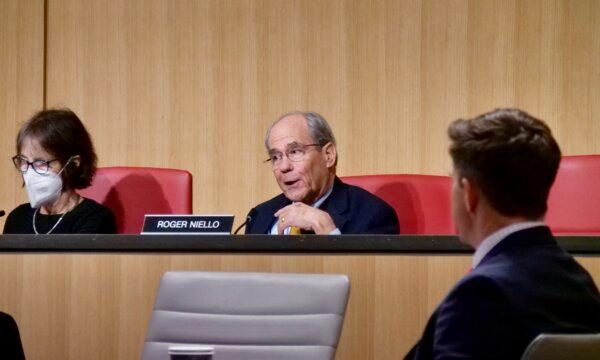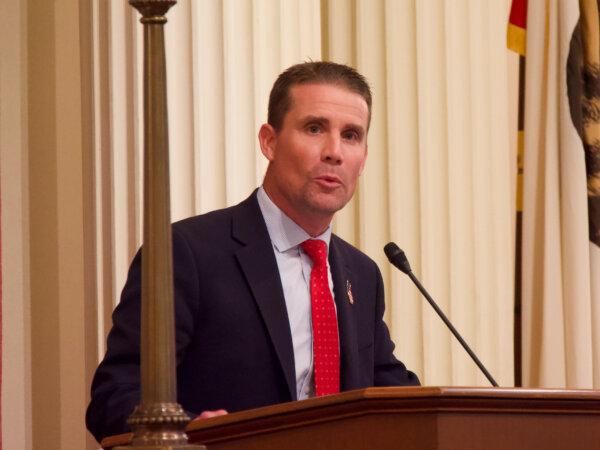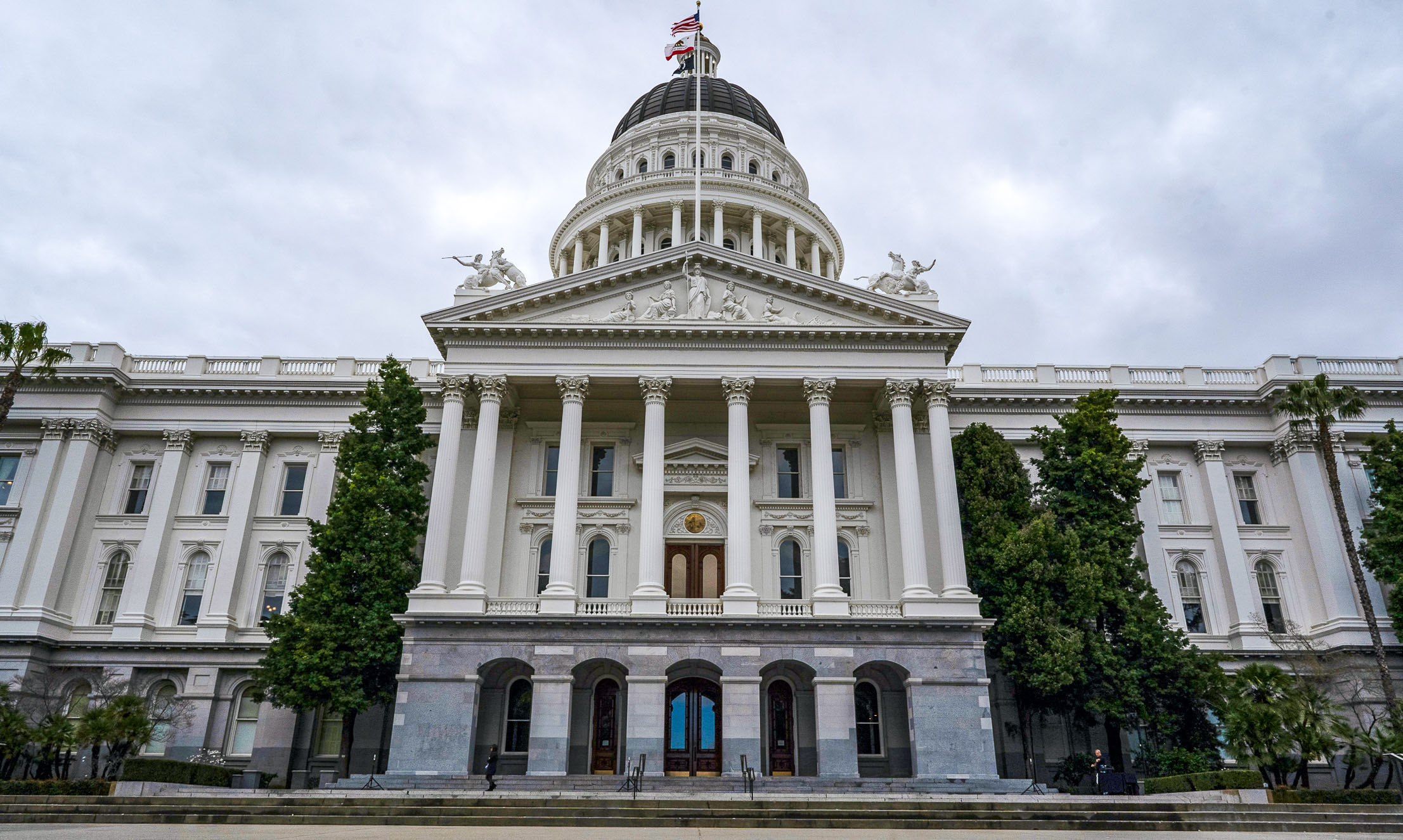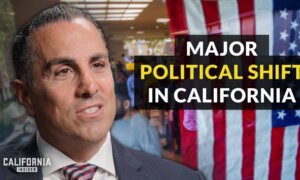Tech giant Nvidia’s stock value has seen meteoric growth—climbing about 190 percent and accounting for about one-third of S&P 500 gains over the past year—and California’s revenues are exceeding expectations as a result, but analysts warn that relying on high tech and the AI industry is leaving the state vulnerable to market fluctuations.
Revenues exceeded expectations by $7 billion compared with June forecasts, though the nonpartisan Legislative Analyst’s Office cautioned the gains are “on shaky ground” in an annual fiscal outlook released Nov. 20.
“While of course the revenue recovery rebound we’ve seen since the June estimate is favorable, because it rests upon stock market appreciation, that to us feels more precarious than if it were built upon more broadly based job growth in the state [and] consumer spending,” legislative analyst Gabriel Petek said during a press conference announcing the report. “When it’s based on the markets, the market sentiments can change quickly, very quickly. It’s very unpredictable.”
Bonuses and stock option compensation at four companies—Nvidia, Apple, Meta, and Alphabet—accounted for nearly 10 percent of California’s total income withholding tax collected in the first six months of 2024, according to the report.
A market correction in Nvidia’s stock price could lower state revenues by as much as $3 billion, deputy analyst Brian Uhler said during the press conference.
The Golden State faced deficits over the last two years, with lower capital gains taxes collected due to market volatility contributing to the shortfalls.
While collections have bounced between abundance and scarcity, California’s spending—increasing by 5.8 percent annually, which is nearly double the historic average, according to the report—is outpacing the average 4 percent a year revenue increase.
Some economic indicators are signaling weakness, suggesting that as high income earners make more money while the stock market is booming, working class Californians are experiencing challenges, the analysis found.
Consumer spending is on the decline, and analysts said the state is navigating a “sluggish economy” impacted by a two-year slowdown that is contributing to a “soft labor market.”
Unemployment ticked up to 5.4 percent—with 25 percent more people unemployed now than in 2022, according to the report.
Analysts found the 2025–2026 fiscal year budget to be “roughly balanced” with a potential for a $2 billion deficit.
Uncertainties that could impact California’s finances include the newly enacted health care minimum wage increase—which analysts estimate could cost the state between the low hundreds of millions to low billions of dollars—and the cost to implement propositions approved by voters, among other things.
Looking forward, the state is expected to face “significant” deficits of about $20 billion in 2026–2027 that will expand annually until at least 2029, the last year included in the forecast.
“Those deficits, to a very significant extent, reflect the fact that there’s a misalignment between the growth rate in our expenditures and the growth rate in our revenues,” Petek said.
Lawmakers will need to address the shortfalls with a combination of raising taxes, cutting spending, shifting costs to other budgets, or by tapping into reserves, according to the report.
Analysts also suggested “robust oversight” of programs to identify potential opportunities to reduce spending and prioritize outlays.
“Particularly given the significant program expansions in recent years and the state’s constrained fiscal capacity, the Legislature now has a key opportunity—if not a necessity—to assess the efficiency, effectiveness, equity, and priority of some of its recent augmentations and longer-standing programs,” analysts wrote.
One lawmaker highlighted the call for oversight in the report and said the Legislature needs to evaluate thousands of programs to determine whether they are achieving their goals.

California state Sen. Roger Niello, vice chair of the Senate Budget and Fiscal Review Committee, asks questions during a meeting in Sacramento on Jan. 23. (Travis Gillmore/The Epoch Times)
“It’s going to be very important for us to start doing things this year to take care of the deficits in the out years,” state Sen. Roger Niello, vice chair of the Senate budget committee, told The Epoch Times on Nov. 20.
Programs that fail to meet objectives should be cut, the senator said.
He agreed with analysts that the state’s reliance on stock market gains is precarious.
“I would suggest that the stock market is in fact overvalued, and we can’t continue to depend upon that,” Niello said.
Lawmakers need to rein in spending to improve the state’s fiscal health, he said.
The state’s Department of Finance responded to the outlook report by highlighting the revenue gains and said the state is better equipped to handle future budget gaps thanks to the governor and Legislature’s work passing a budget that addresses future deficits.
“[The] Fiscal Outlook represents a reasonable starting point for next year’s budget discussion,” H.D. Palmer, principal spokesman on fiscal issues for the Newsom administration and deputy director for external affairs for the Finance Department, told The Epoch Times by email Nov. 20. “As always, there will be some differences in our respective projections.”
Also potentially contributing to “more uncertainty than usual” for the state is the incoming administration of President-elect Donald Trump, he said.
“Every California budget can be affected by forces outside of our control—whether it’s conflict overseas or an unpredictable stock market here at home,” Palmer said. “But this year, we have the added uncertainty of dramatic changes in federal policy next year under a new administration, and how policies such as higher tariffs and changes in legal immigration could add additional costs that affect not only the California economy overall, but our bottom line as well.”
He said the governor’s administration also recognizes that new laws passed by voters and increasing health care costs could put pressure on the budget.
“So, in short, we can be pleased with the progress that’s been made since this time last year, but it’s essential that we’re clear-eyed about the challenges that lie ahead,” Palmer said.

Senate President Pro Tem Sen. Mike McGuire addresses the Legislature at the Capitol in Sacramento on Aug. 31. (Travis Gillmore/The Epoch Times)
The leader of the state Senate said there’s much work to be done to craft a sustainable path forward.
“We need to continue to buckle down on spending and be incredibly strategic on any future fiscal expansion,” Senate President pro Tempore Mike McGuire said in a statement emailed to The Epoch Times Nov. 20. “Folks are doing their best to make ends meet, and it’s our responsibility to implement policies and secure investments that will make their lives more affordable.”














